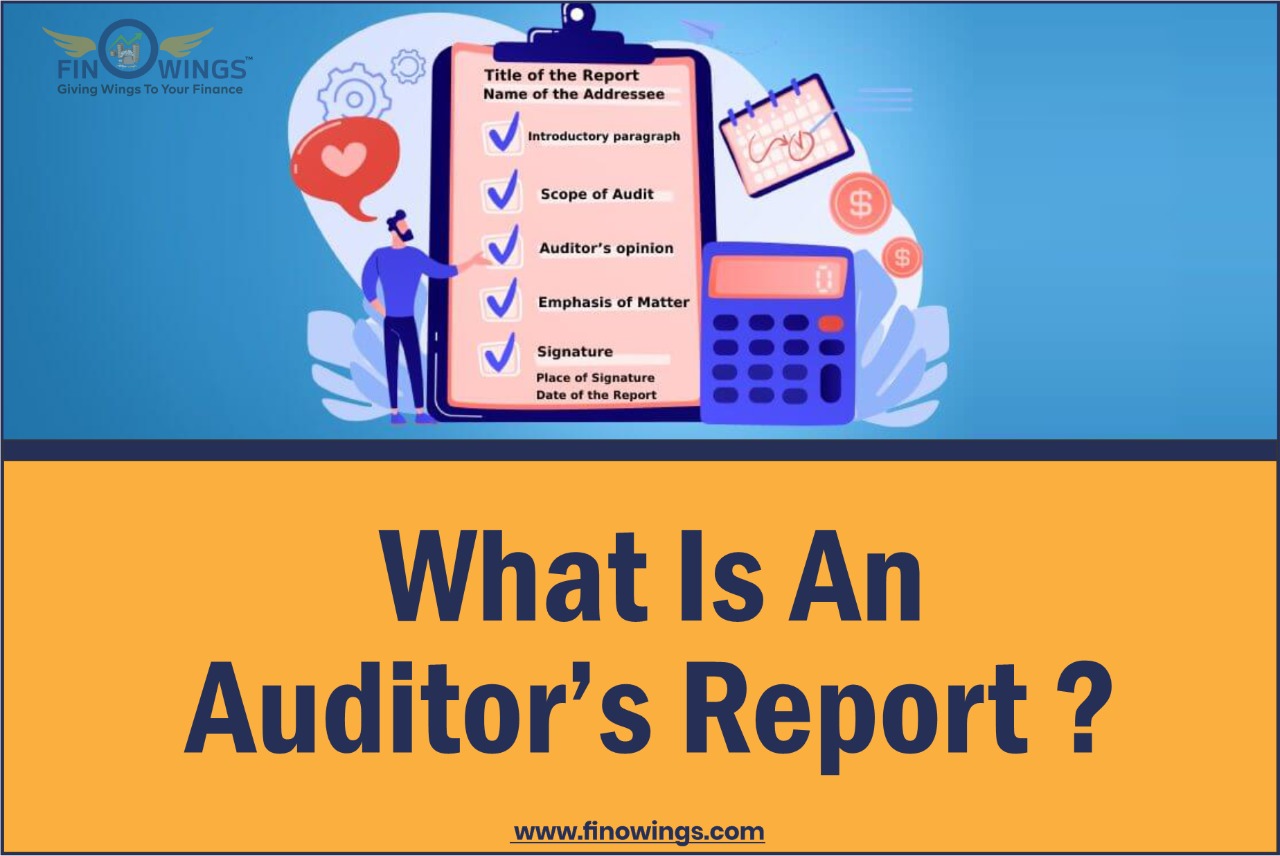Home >> Blog >> What is an auditor's report?
What is an auditor's report?

Table of Contents
What Is the Auditor's Report?
An independent external auditor audits the company's accounts at the end of each fiscal year. Following an audit of the company's accounts and inventory, the auditor will issue a written report stating his opinion on whether a company's financial statements follow generally accepted accounting principles (GAAP) and are free from any material misstatement.
The auditor's report is typically published alongside the company's annual report. Banks, financial institutions, creditors, and investors rely on audit reports. Based on the audit report, they make several important decisions related to the company.
The company's clean auditor's report demonstrates the company's sound financial health and compliance with all central accounting norms. In contrast, an unclean auditor's report indicates some errors in the company's financial health.
The company's auditor's report can have a variety of effects on the status of the company. For example, banks and creditors lend money to a company after reviewing its auditor's report, which assists them in evaluating the company's financial statements. As a result, all businesses must adhere to good accounting practices to maintain a positive market status and reputation.
What Are The Types Of Auditor's Reports
There are four audit reports that auditors issue regarding the company's financial statements. These reports assist financial institutions, banks, investors, and others learn about a company's financial health and make critical business decisions. The following are the four most common types of auditor's reports:
-
Clean or Unqualified Opinion
It is the type of report that every company desires. This report demonstrates that the company's financial situation is under control and that it is adhering to all applicable laws and regulations following GAAP. Therefore, if a company receives this report, it can be assumed there are no material misstatements in its financial statement. In addition, this report indicates that the auditor found no errors in the company's financial statements. As a result, most companies receive a clear or unqualified report.
-
Qualified Opinion
Although a qualified opinion is not the best thing a company can receive, this report allows the company to correct the errors and receive a clear and unqualified opinion. The company will most likely get a qualified report in two situations. First, if the auditor discovers a mistake in the financial statements, it is not widespread. Second, if the auditor lacks sufficient evidence to form an opinion, the material misstatement is not pervasive. In any case, the auditor specified the area where they encountered problems in the report so that the company could correct the errors.
-
Adverse Opinion
An adverse opinion is the worst possible report from an auditor that a company can receive. A negative report indicates material and pervasive misstatements in the company's financial report. This type of report can harm a company's reputation and cause legal consequences if the issues are not resolved. For example, investors, financial institutions, and banks rejected the company and lost their trust due to negative opinions. Furthermore, if the auditor issues a negative report based on illegal activity in the company, the corporate officer may face criminal repercussions. In addition, there is a possibility that an error has caused a negative opinion; in this case, the company must correct the mistake and re-audit its financial statements.
-
Disclaimer of Opinion
This type of opinion is issued when the auditor does not have access to sufficient evidence on which he or she can base his opinion. Another reason could be that the auditor did not receive satisfactory answers to his questions from company officials or that the impact of an undetected misstatement in the company's financial statements is both material and pervasive. For example, an auditor may refuse access to certain financial information or deny being biased.
Format of Auditor's Report
-
Title – This heading contains the 'Independent auditor's report' title on the top of the report. The term 'independent' denotes that an external and independent auditor performs the auditing, and thus the report is unbiased.
-
Addressee - This heading specifies to whom the report is addressed. For example, the name of the company's director.
-
Introduction - This section includes the company's name, the date of the financial period, and the fiscal year for which auditing is performed.
-
Responsibilities of directors and auditors – This section includes the directors' and auditors' responsibilities. It states that the company's management provides all the financial details required to prepare the audit report. It also mentions that the director and auditor are fulfilling their roles and responsibilities, and the auditor formed his opinion based on the given information.
-
Opinion - This heading contains the opinion of the auditor. In this section, the auditor explains the company's financial statements after the audit of accounts and inventory.
-
Basis of opinion - This heading describes how auditing is carried out and adheres to the standard audit process and resources.
-
Another reporting responsibility - This section specifies whether the auditor has other legal or regulatory obligations.
-
Auditor's signature - This heading contains the signature of the auditor.
-
Date and location - This heading includes the date and time the auditor signed the report.
What Does a Report by an Auditor Mean?
An auditor's report cannot guarantee a company is good for investment. It is not a criterion for evaluating a company as a good choice for investment. The auditor's report is irrelevant to the company's earnings or growth. It is simply a criterion for determining the reliability of a company's financial statements.
It is a written letter from an auditor regarding the company's financial statements. It is helpful to know whether the company is abiding by all of the regulations that govern standard accounting or not. In addition, this report is required in various situations, including when a company reports its earnings to the Securities and Exchange Commission (SEC).
Conclusion
Even though the auditor's report is not a criterion for determining whether a company is a good fit for investment or not, it is helpful to understand the company's financial health. It is also crucial while making important decisions related to a particular company. In addition, the auditor's report provides information about the company's market reputation. As a result, before making any decisions about a company, it is best to review its audit report. You can also seek advice from Agarwal Corporate for any investment-related query.
Frequently Asked Questions
An audit provides a fair level of certainty regarding a company's financial statements. It also helps businesses in maintaining their credibility with investors.
An audit typically takes 3 months to complete from beginning to end. It typically takes the auditor four weeks to plan, four weeks to conduct the audit, and four weeks to compile the audit report.
A professional auditor will often conduct an audit once a year, and it should include all of the operations connected to companie's management system.
The audit report is produced by an auditor.
















